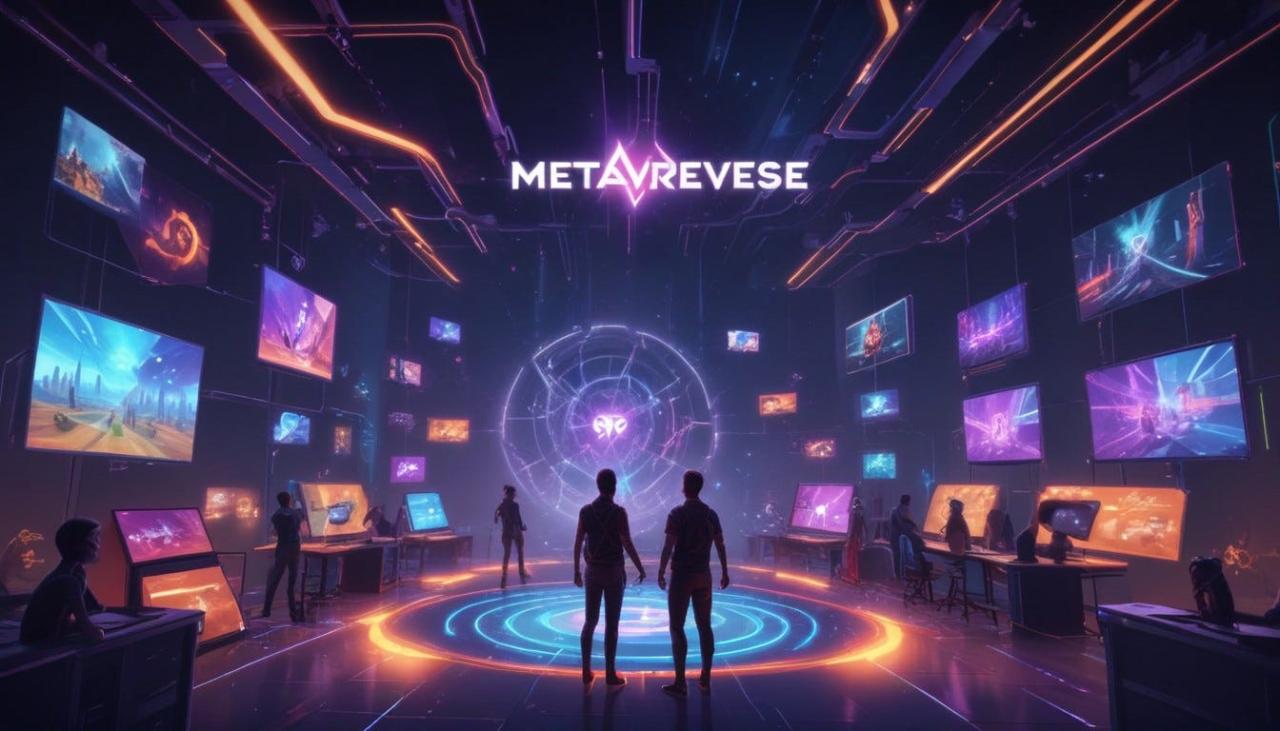The concept of the Metaverse has taken the tech and gaming world by storm, promising a digital universe where people can interact, work, and play in immersive virtual environments. But as Metaverse games gain popularity, many wonder: Are they the future of gaming, or just a passing fad?
In this in-depth article, we’ll explore the evolution of Metaverse games, their potential impact on the gaming industry, and whether they are here to stay. We’ll also discuss the challenges they face, the best Metaverse games available today, and what the future holds for this emerging technology.
What Are Metaverse Games?
Metaverse games are virtual worlds that combine gaming, social interaction, and blockchain technology to create persistent, immersive experiences. Unlike traditional video games, Metaverse games allow players to own digital assets (like virtual land, NFTs, and in-game items) and even earn real money through play-to-earn (P2E) models.
Key features of Metaverse games include:
-
Persistent Worlds: The game environment continues to exist and evolve even when players log off.
-
Player Ownership: Players can buy, sell, and trade in-game assets using blockchain technology.
-
Social Interaction: Virtual meetups, concerts, and events make these games more than just entertainment they’re digital communities.
-
Cross-Platform Play: Many Metaverse games are accessible on PC, VR, and mobile devices.
The Evolution of Metaverse Games
A. Early Beginnings (2000s – 2010s)
The idea of virtual worlds isn’t new. Early examples include:
-
Second Life (2003): A social simulation where players could create avatars, buy virtual land, and interact.
-
World of Warcraft (2004): Though not a Metaverse game, its massive online world laid the groundwork for persistent multiplayer environments.
B. The Rise of Blockchain and NFTs (2020s)
With the growth of blockchain technology, Metaverse games evolved to include:
-
Decentraland (2017): One of the first blockchain-based virtual worlds where players buy and develop virtual land as NFTs.
-
The Sandbox (2018): A user-generated content platform where players create and monetize their gaming experiences.
C. The Meta (Facebook) Influence (2021-Present)
When Facebook rebranded to Meta in 2021, interest in the Metaverse skyrocketed. Major gaming companies like Epic Games (Fortnite) and Roblox began integrating Metaverse-like features.
Are Metaverse Games the Future or Just a Trend?
Arguments for the Future of Metaverse Games
-
Growing Investment
-
Tech giants like Meta, Microsoft, and Google are investing billions into Metaverse development.
-
Gaming companies are adopting NFTs and blockchain for player-owned economies.
-
-
Play-to-Earn (P2E) Revolution
-
Games like Axie Infinity allow players to earn cryptocurrency, making gaming a potential income source.
-
-
Virtual Reality (VR) Advancements
-
With VR headsets like Oculus Quest 3 and Apple Vision Pro, immersion is reaching new levels.
-
-
Digital Real Estate Boom
-
Virtual land sales in Decentraland and The Sandbox have reached millions of dollars.
-
Challenges That Could Make It a Fad
-
High Entry Costs
-
VR equipment and blockchain transactions can be expensive.
-
-
Regulatory Uncertainty
-
Governments are still figuring out how to regulate NFTs and cryptocurrency.
-
-
Sustainability Concerns
-
Blockchain gaming consumes significant energy, raising environmental issues.
-
-
User Adoption
-
Many gamers still prefer traditional games over complex Metaverse ecosystems.
-
Top 5 Metaverse Games to Watch in 2024
A. Decentraland (MANA)
-
A blockchain-based virtual world where players buy, sell, and develop land as NFTs.
-
Hosts virtual events like fashion shows and music concerts.
B. The Sandbox (SAND)
-
A user-generated content platform where players create and monetize games.
-
Partners with major brands like Adidas and Snoop Dogg.
C. Axie Infinity (AXS)
-
A play-to-earn (P2E) game where players breed and battle fantasy creatures (Axies).
-
Popular in developing countries as a source of income.
D. Roblox
-
While not blockchain-based, Roblox offers a Metaverse-like experience with user-created games.
-
Used by brands like Nike and Gucci for virtual experiences.
E. Fortnite (Metaverse Integration)
-
Epic Games is expanding Fortnite into a social Metaverse with virtual concerts (e.g., Travis Scott).
The Future of Metaverse Games
The Metaverse gaming industry is still in its early stages, but trends suggest:
-
More AAA Game Studios will enter the space.
-
VR and AR Integration will enhance immersion.
-
Regulations Will Shape Growth as governments address crypto and NFT laws.
-
Hybrid Gaming Models (traditional + blockchain) may emerge.
Conclusion: Future or Fad?
While Metaverse games face challenges like high costs and regulatory hurdles, their potential for innovation, player ownership, and virtual economies makes them more than just a trend. As technology improves and adoption grows, Metaverse gaming could redefine entertainment, work, and social interaction in the digital age.
Will they dominate the future? Only time will tell but for now, they’re one of the most exciting developments in gaming.













